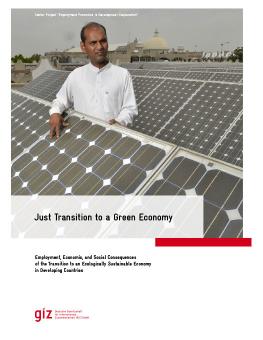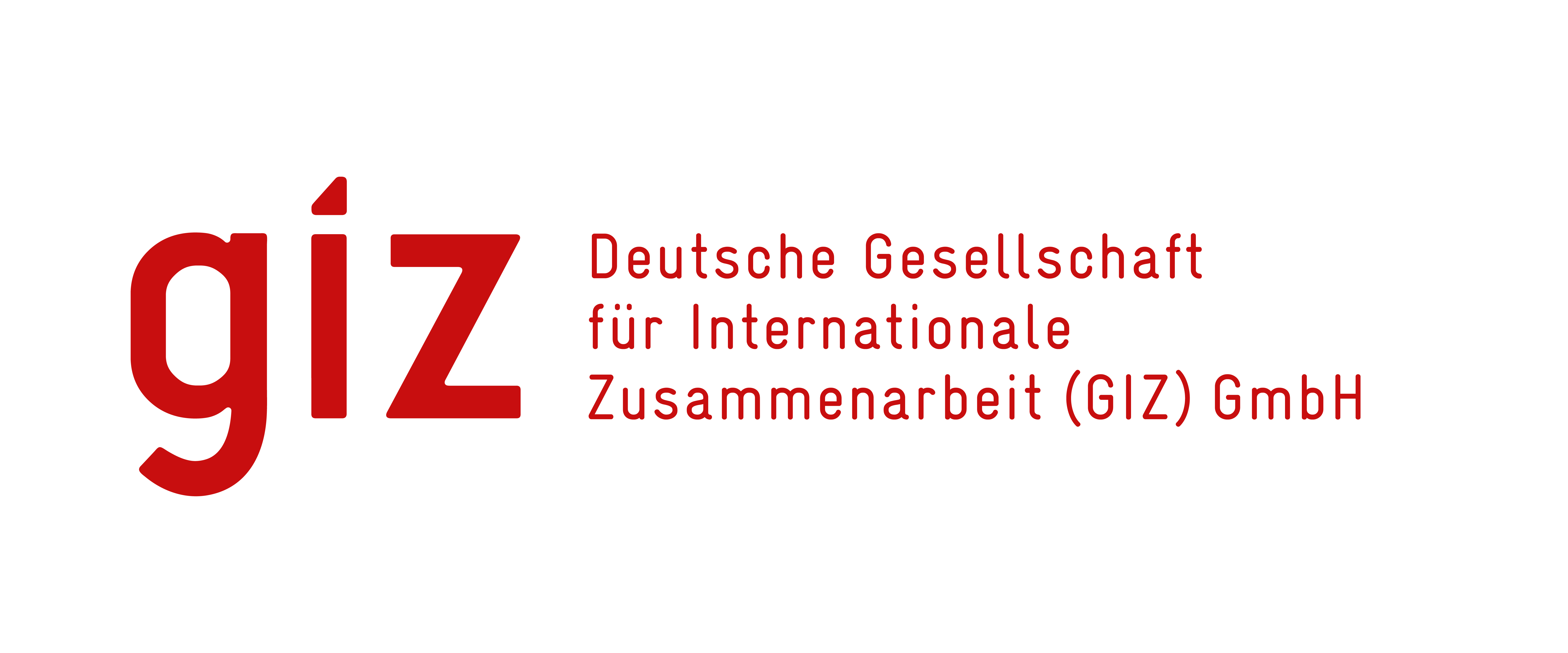
Just Transition to a Green Economy
Employment, Economic, and Social Consequences of the Transition to an Ecologically Sustainable Economy in Developing Countries
This report demonstrates how just transition policies can address relevant challenges in developing countries and emerging economies. It identifies options for political, economic, and social actors to combine environmental change with sustainable development and evaluate the impact of policy and support instruments on employment and social justice. It also defines possible support from the German Development Cooperation. Commissioned by the Deutsche Gesellschaft für Internationale Zusammenarbeit (GIZ) on behalf of the German Federal Ministry for Economic Cooperation and Development (BMZ), this study is based on extensive literature review supplemented by interviews with GIZ and external experts.
Often, a just transition has been associated with the energy sector, but principles for a just transition can be considered across other sectors that may undergo difficult reforms that affect tripartite partners (workers, employers, and government) and stakeholders as countries look to achieve the Agenda 2030, the Sustainable Development Goals, the Paris Agreement on Climate Change (and its Nationally Determined Contributions [NDCs]), and national development and climate strategies.
Based on research into a series of case studies related to a just transition in developing and emerging economies, suggestions emerge for both stakeholders in these countries participating in and supporting just transitions and for German Development Cooperation (GDC) as it looks to support efforts on a just transition at the partner country level. Coal phase-out, fossil fuel subsidy reform, the development of renewable energy, circular economy and waste management, and sustainable agriculture and land use are examined, with case studies in Bangladesh, Colombia, India, Indonesia, Nigeria, South Africa, and other countries.
You might also be interested in
The Cost of Fossil Fuel Reliance
Government support for fossil fuels reached at least USD 1.5 trillion in 2023, new data shows.
Artisanal and Small-Scale Mining of Critical Minerals
This report examines the potential for artisanal and small-scale mining (ASM) to take an expanded role in the global supply of critical minerals.
Europe’s Dash for Gas in Africa puts Private Profits First
Europe’s demand for gas is contributing to expansion of LNG projects in Mozambique, Nigeria, and Senegal. This favours the interests of European oil and gas companies over those of African countries, a new report shows.
What Will Happen at COP 29?
Talks at the 2024 UN Climate Change Conference (COP 29) will range from defining a way forward on finance through a new collective quantified goal (NCQG) to mitigation, and loss and damage. Ahead of negotiations in Baku, IISD’s Earth Negotiations Bulletin Team Lead Jennifer Bansard examines the agenda and breaks down what to watch as eyes turn to Azerbaijan.
